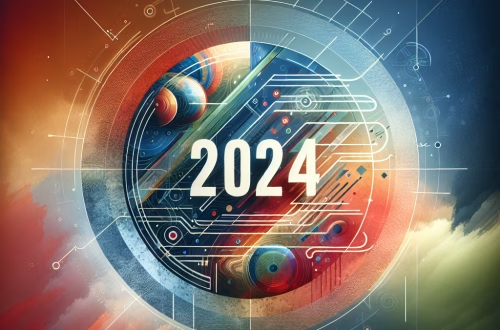Perplexity AI for Academic Writing vs. Scite AI 2025
Summary:
Perplexity AI and Scite AI are two distinct AI-powered tools reshaping academic writing in 2025. Perplexity AI focuses on real-time information retrieval and conversational search, helping researchers draft content using up-to-date web sources. Scite AI emphasizes citation intelligence, analyzing how scholarly papers are referenced (e.g., supporting/contradicting citations) to strengthen literature reviews. For novices, understanding these tools matters because they address different research needs: Perplexity accelerates exploratory writing, while Scite enhances critical analysis and evidence validation. Both reduce manual workloads but require strategic use to avoid pitfalls like misinformation or citation bias.
What This Means for You:
- Streamlined research processes: Perplexity AI speeds up background research by summarizing complex topics in seconds, while Scite AI provides instant citation context. Use Perplexity for initial drafts and Scite to verify source credibility before finalizing papers.
- Actionable advice for tool selection: If your focus is hypothesis generation or drafting introductions, prioritize Perplexity. For systematic reviews or grant proposals requiring citation analysis, Scite’s Smart Citations are indispensable. Always cross-check Perplexity’s sources and supplement Scite with manual verification.
- Optimized academic workflows: Combine both tools: Use Perplexity’s “Focus” feature to narrow sources by domain (e.g., .edu or PubMed) and Scite’s dashboard to track citation trends. Export results to reference managers like Zotero for structured writing.
- Future outlook or warning: As AI reliance grows, institutions may mandate disclosure of AI tool usage in methodologies. Beware of Perplexity’s potential hallucination in niche topics and Scite’s coverage gaps in newer preprints. Regularly review both tools’ update logs for accuracy improvements.
Explained: Perplexity AI for Academic Writing vs. Scite AI 2025
Core Functionalities and Target Users
Perplexity AI operates as an answer engine, leveraging large language models (LLMs) like GPT-4 and real-time web indexing to deliver sourced responses. Its academic value lies in Copilot searches, where users can refine queries with filters for date, publication type, or domain. Scite AI functions as a citation analysis platform, using NLP to scan over 1.2 billion citation statements, classifying them as supporting, contrasting, or mentioning. This is vital for validating claims in disciplines like biomedicine or social sciences, where citation context determines argument robustness.
Strengths Comparison
Perplexity AI’s advantages:
- Speed: Generates literature summaries 5x faster than manual searches
- Multimodal input: Accepts PDF uploads or draft text for targeted feedback
- Cost efficiency: Free version suffices for basic research vs. Scite’s paid plans
Scite AI’s advantages:
- Citation maps: Visualizes citation networks for key papers
- Custom alerts: Notifies users when new papers cite their work (or competitors’)
- Journal dashboard: Assesses journal impact via citation sentiment metrics
Limitations and Risks
Perplexity AI weaknesses:
- Source bias: Over-relies on high-SEO websites vs. peer-reviewed databases
- Depth limitation: Superficial explanations for specialized topics (e.g., quantum computing)
Scite AI weaknesses:
- Coverage gaps: Limited pre-2010 citation context in humanities
- Cost barrier: Institutional plans start at $3,000/year, steep for independents
Both tools struggle with non-English texts and interdisciplinary terminology, requiring manual oversight.
Best Use Cases
When to choose Perplexity AI:
- Rapid literature surveys for conference abstracts
- Drafting non-critical sections like methodologies
- Identifying emerging trends via its “Related Questions” feature
When to choose Scite AI:
- Literature reviews requiring evidence strength assessment
- Responding to peer reviewer critiques about citation balance
- Identifying research gaps via under-cited “contrasting” papers
Hybrid approach example: Use Perplexity to draft a paper’s introduction, then validate key citations via Scite’s Assistant plugin in Word.
2025-Specific Upgrades
Perplexity’s 2025 Academic Pro mode integrates with institutional repositories (e.g., arXiv, ERIC), while Scite’s Generative Context feature auto-suggests rebuttals using contradictory citations. These updates narrow functionality gaps but necessitate cautious adoption.
People Also Ask About:
- Can these tools replace database searches (e.g., PubMed, Scopus)?
No—they complement but don’t replace traditional databases. Perplexity and Scite lack advanced Boolean search filters and coverage of behind-paywall content. Use them for preliminary work, then cross-reference Scopus for comprehensive results.
- How accurate are citation classifications in Scite AI?
Scite claims 93% accuracy based on human-annotated tests, but errors occur with ambiguous phrases like “prior work fails to consider.” Always sample-check classifications in high-stakes writing.
- Is Perplexity AI free for academic use?
Yes, but the free tier limits Copilot searches to 5/day. Academic Pro ($200/year) offers unlimited searches, enhanced PDF analysis, and integration with reference managers.
- Do universities allow these tools?
78% of top universities permit them per 2024 Stanford study, but many require attribution in methodologies. Consult your institution’s AI ethics guidelines before use.
Expert Opinion:
Academic AI specialists caution against over-reliance on these tools. Perplexity’s real-time data risks incorporating unvetted preprints, while Scite’s binary “supporting/contrasting” labels may oversimplify nuanced academic discourse. Users should maintain human oversight, especially in fields with rapid paradigm shifts. Emerging 2025 tools like “Consensus AI” may bridge these gaps by combining citation analysis with LLM-driven synthesis.
Extra Information:
- Perplexity AI Academic Pro Features – Details on academic-specific search filters and institutional pricing tiers.
- Scite Assistant Documentation – Guide to using Scite’s citation plugin in Word/Overleaf.
- Nature’s 2024 AI Tools Review – Contextualizes Perplexity/Scite within broader academic AI trends.
Related Key Terms:
- Scite AI citation analysis benefits for researchers 2025
- Perplexity Pro academic writing features comparison
- AI-powered literature review tools for PhD students
- Best AI tools for scientific paper citation validation
- Perplexity AI versus Scite AI cost-effectiveness analysis
- How to integrate Perplexity AI with Zotero 2025
- Scite AI Smart Citations accuracy studies
Check out our AI Model Comparison Tool here: AI Model Comparison Tool
#Perplexity #academic #writing #Scite
*Featured image provided by Pixabay





